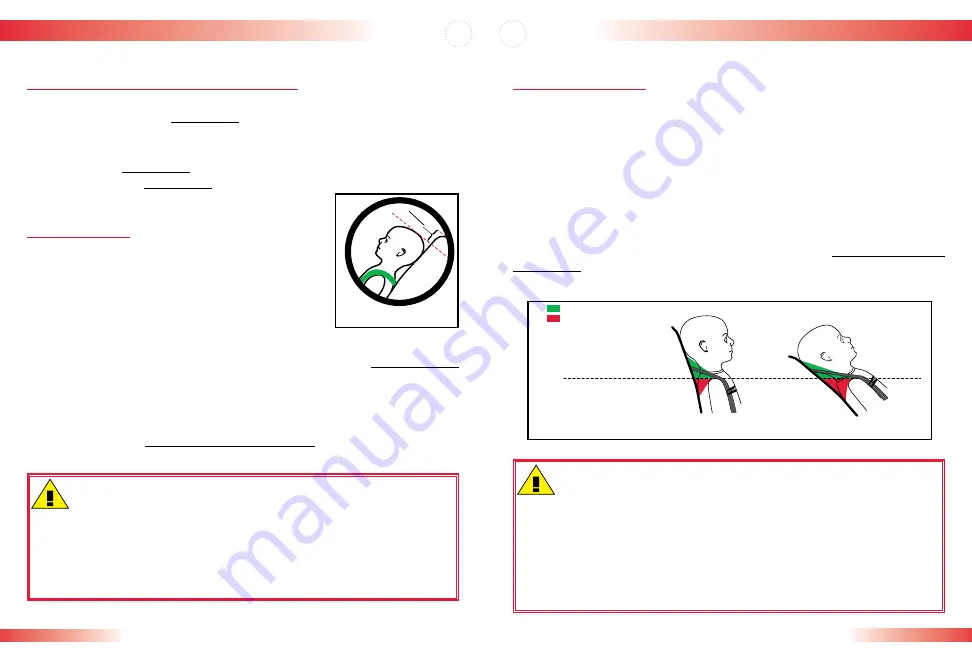
6
7
Safety Information
Safety Information
Important Harness Adjustments
According to the American Academy of Pediatrics:
All infants should ride rear-facing until they have reached at least 1
year of age and weigh at least 20 pounds (9.1 kg). That means that
if your infant reaches 20 pounds (9.1 kg) before her first birthday, she
should remain rear-facing at least until she turns 1 year old. It is best
for children to ride rear-facing to the highest weight or height allowed
by the manufacturer.
Rear-Facing
Use rear-facing only with children:
who weigh between 5 and 35 lbs (2.3 – 15.9 kg)
•
and
the top of the child’s head is at least 1” (2.5 cm) or
•
more below the top of the child seat (Fig. A)
and
the harness straps are in the nearest slots at or
•
below the child’s shoulders.
If the child cannot be secured within these requirements because the
child exceeds height or weight requirements, review the forward-facing
guidelines on page 7.
If the child cannot be secured within these requirements because the
child is too small, selection of a different child seat (such as an infant
carrier) may be required.
IMPORTANT:
See Adjusting Harness Slot Height on page 31.
WARNING!
Do NOT use the child seat rear-facing if any of the following apply:
the child is less than 5 lbs (2.3 kg) in weight
•
or
the child exceeds 35 lbs (15.9 kg) in weight
•
or
the top of the head is less than 1” (2.5 cm) from the top of the child
•
seat (Fig. A)
or
the harness straps are in a slot above the child’s shoulders.
•
WARNING!
Do NOT use the child seat forward-facing if any of the following apply:
the child is less than one year of age
•
or
the child is less than 20 lbs (9.1 kg) in weight
•
or
the child exceeds 65 lbs (29.5 kg) in weight
•
or
the child exceeds 49” (124.5 cm) in height
•
or
the top of the ears are above the top of the child seat
•
or
the top harness slots fall below the child’s shoulders, parallel to level
•
ground (Fig. B)
1 inch
2.5 cm
Rear-Facing
A
Forward-Facing
Use forward-facing only with children:
who are at least one year of age
•
and
who weigh between 20 and 65 lbs (9.1 – 29.5 kg)
•
and
49” (124.5 cm) or less in height
•
and
the top of the child’s ears are below the top of the child seat
•
and
the harness straps are in the nearest slots at or above the child’s
•
shoulders, parallel to level ground (Fig. B).
IMPORTANT:
When using forward-facing recline mode, it may
become necessary to adjust the harness to the next higher set of slots
than would be used when the seat is upright.
See Adjusting Harness
Slot Height on page 31.
Shoulder level
Above Shoulder Level
Below Shoulder Level
Upright
Reclined
Forward-Facing Harness Height
b































